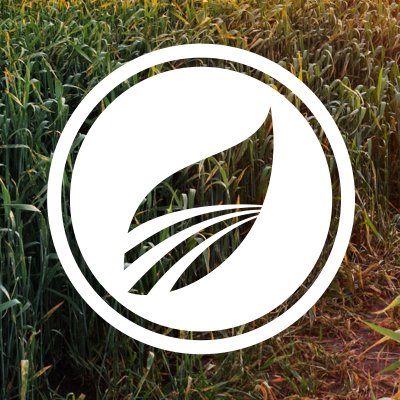
Despite What Has Been Reported, Certified Organic Clothing and Textiles are Not Suffering from Endemic Fraud. The System is Getting Stronger Each Day.
(Above: Marci Zaroff, founder of ECOfashion Corp, with organic cotton farmers in India. Images at the bottom courtesy of GOTS.)
How Organic Insider operates: We accept no advertising, we have no paywalls and we make our newsletters free to everyone because vital information about our industry needs to get out to as many people as possible. Please consider supporting our work, whether you are an individual or a company. Thank you so much.
Earlier this year, The New York Times published a very damaging story about fraud in the organic textile sector, claiming that “much of the ‘organic cotton’ that makes it to store shelves may not actually be organic at all.”
Needless to say, the article caused serious harm and sowed doubt in the minds of everyday consumers, who are now questioning whether their organic shirts and sheets are legitimate.
“The story was very skewed and one-sided,” said Marci Zaroff, founder of ECOfashion Corp and one of the pioneers in the organic clothing and textile business. “The newspaper didn’t publish many of the interviews they did that supported all of the legitimate, fully compliant activities that operate on a daily basis.”
The good news, which was also conveniently omitted from the NYT piece, is that if shoppers know what to look for, their fears of purchasing fraudulent organic clothing are largely unfounded. Additionally, the organic cotton sector has never had more safeguards in place to uphold and strengthen its integrity.
WHERE THE FRAUD IS COMING FROM
When organic cotton is grown around the world, farms are certified by their respective countries, whether that be India, Turkey, the U.S. or any other nation.
Once that organic cotton is delivered to the gin, to be eventually processed into an end-product, that is where one of the two globally recognized organic textile certifications often step in — Textile Exchange’s Organic Content Standard (OCS) and the Global Organic Textile Standard (GOTS).

OCS, a chain of custody standard, and GOTS, a processing standard that covers chain of custody, both provide third-party validation that everyone in the supply chain is adhering to their accepted guidelines. Just like the USDA’s National Organic Program, participation in OCS and GOTS is completely voluntary. No company is forced to be involved in the certification.
While no one would deny there may be lapses in OCS and GOTS, just like every other certification in the world, insiders contend that issues of fraud within the OCS and GOTS ecosystems are not endemic. They are much more isolated.
These experts believe that the majority of fraudulent organic cotton takes place outside of OCS and GOTS, a distinction that the NYT failed to mention. In general, this is an area where safeguards are either non-existent or not nearly as stringent as OCS and GOTS.
Even though continuous improvement has been a staple of both Textile Exchange and GOTS since their inception, the NYT article did have the unintended consequence of accelerating efforts to bolster integrity in organic cotton in both certifications.
Textile Exchange just released its released Strengthen Integrity in Organic Cotton report, and a few of the notable measures include reporting annual production volume for reconciliation purposes and increasing oversight of certification bodies.
Additionally, its Trackit software, which has been in development for the last two years, launches on January 1st. Trackit will digitally provide traceability and transparency throughout the entire supply for participating brands, something incredibly important due to the number of hands that touch an organic cotton product before it reaches the end-consumer.
On November 1st, GOTS announced that it had significantly raised the requirements for GOTS-certified gins, including a compulsory farm-gin registry for all farms and farm groups whose certified raw material enters the GOTS system, an increase in unannounced audits of high-risk gins, and a prohibition of raw cotton traveling more than 500 km from the farm to the certified gin.
Also, GOTS is currently developing a central database that will track the origin of not only organic cotton but also other organic materials. It will cover the entire GOTS chain of custody, from the first processing steps to the final products.
But it isn’t just private certifications that are cracking down.
In January 2021, the USDA’s National Organic Program terminated its organic recognition arrangement with India’s Agricultural and Processed Food Products Export Development Authority (APEDA). According to experts, APEDA contributed to a great deal of fraud in organic cotton and food commodities, and that door has now been closed, making things much more difficult for bad actors.
CONSUMERS ARE AN ESSENTIAL PART OF THE EQUATION
Whether they realize it or not, consumers play a critical role in both protecting themselves from fraud and strengthening the overall industry.
Individuals should look for organic clothing and textile products that carry the OCS or GOTS seal, similar to when food shoppers look for the USDA organic seal.
Conversely, when a company is marketing organic cotton products but fails to have the OCS or GOTS certification, consumers should encourage the brand to become OCS or GOTS certified. Without OCS, GOTS or another reputable third-party certification, the likelihood is much greater that the product is fraudulent.
“We need to be more examined consumers,” said Matt Dwyer, vice president of product impact and innovation at Patagonia. “If folks started asking ‘Who made it? Where was it made? How do I know?’ — brands will have to come back with an answer, and consumers may or may not like the discovery process. This is the revolution we need to spur.”
While the NYT article did its best to discredit the legitimacy of organic cotton, the fact remains that textiles made with organic fibers are a critical component of protecting our environment and keeping farmers safe.
Clothing produced with genetically-engineered cotton and toxic pesticides comes at a real cost to our planet and the workers who are exposed to these harmful chemicals, even if the prices at the register may be less.
“We have to get out of the price paradigm and into the value paradigm,” said La Rhea Pepper, CEO of Textile Exchange. “If we want to mitigate climate change, we need to invest in proven solutions. And that means supporting organic agriculture.”




 |
With gratitude, 
Max Goldberg, Founder |
Quick Hits
* Organic sourdough bakery 123Dough now has a pop-up in Brooklyn.
* Sarela Herrada, co-founder of SIMPLi, has joined the board of directors at the Regenerative Organic Alliance, which oversees the Regenerative Organic Certified label.
* Organic & Natural Health Association’s 8th Annual Conference will be held in Cape Coral, FL on January 17-19, 2023.
* San Diego restaurant GOODONYA has launched organic pancake mixes and root beer herbal soda.
* The 43rd EcoFarm Conference will take place January 18-21, 2023 in Monterey, CA.
* California’s oldest family-owned cheese company.
* Sempera Organics is targeting “core” health categories with new mushroom extracts and blends.
* This university in Iowa is now offering a degree in regenerative organic agriculture.
* What is a soil carbon credit?
* Japan Society is hosting a free online webinar on December 7th — Seasonality, Superfoods and Other Secrets of Japanese Cuisine
* Autonomous robots are helping to modernize the grape and wine industries.
New Organic Products
3 Cheeze Blend from Forager Project
Using traditional cheesemaking techniques, Forager Project has just introduced its 3 Cheeze Blend -- a combination of Monterey jack, queso fresco and cheddar. The company utilizes a combination of cultures and organic cashews to develop its unique flavor and creamy texture. Organic, vegan, dairy-free, soy-free and gluten-free.Vanilla Chai Plant-Based Protein Powder from Truvani
Truvani has added to its collection of organic, plant-based protein powders with its newest flavor -- Vanilla Chai. Key base ingredients include pea protein, pumpkin seeds, chia seeds and monkfruit, in addition to vanilla powder, clove powder, ginger root and cardamom. Non-GMO Project verified, certified vegan and gluten-free certified.Biodynamic Dark Chocolate Bars from Solspring
Demeter certified Biodynamic and USDA certified organic, the chocolate bars from Solspring come in two rich flavors -- Dark Chocolate and Dark Chocolate with Hazelnut. Made with 70% cocoa from cacao beans, cane sugar and cocoa butter, they offer 4g of dietary fiber and 3-4g of protein. Produced by a family-owned Swiss chocolate maker with more than 90 years of experience.Pure Madagascar Vanilla Paste from LAFAZA
Using a slow extraction process to optimize flavor and aroma, the Pure Madagascar Organic Vanilla Bean Paste from LAFAZA is a combination of ground vanilla and concentrated high-quality vanilla extract. The vanilla beans are sourced directly from farmers who utilize environmentally-sustainable, agroforestry practices. Non-GMO Project verified, gluten-free and kosher certified.
Weekly News Summaries


U.S. Disaster Payments are Needed, Organic Livestock Producers Send Plea for Help to Congress
By Chuck Abbott
“Organic milk buyers say they cannot increase pay to a level that can help organic dairies cash-flow their operations,” said Ed Maltby of the Northeast Organic Dairy Producers Alliance. “After six years of a pay price that is significantly lower than the costs of production, producers have no reserves left.”

Consumers turn to Mass, Club as They Seek Lower Grocery Prices Amid Rising Inflation
By Elizabeth Crawford
According to the data published earlier this month, 80% of consumers reported shopping for groceries differently.

What Natural and Organic Leaders Want from the 2023 Farm Bill
By Douglas Brown
Knowing the legislation has wide-ranging effects on farmers, brands and retailers, industry stakeholders are working hard to advance key initiatives.

U.S.-led AIM for Climate Project Promotes “False Solutions” and “Distractions”
An international coalition of climate and food sustainability leaders are warning against “false solutions” promoted at the recent COP27 climate conference by AIM for Climate -- a multi-billion dollar initiative by the USDA to promote agritech (biotechnology, nanotechnology, robotics and AI) as a primary solution to the climate crisis.

EFRAG Approves European Sustainability Reporting Standards
By Mark Segal
This puts HUGE pressure on the SEC to enact similar measures in the U.S. A very, very positive development.

(included) CPG launching Trade Show Program for BIPOC Founders
Emerging BIPOC food and beverage brands to receive key opportunities for visibility and growth with exhibition sponsorship at major 2023 trade shows.


Yelp 2023 Trends include Mocktails and Dirty Sodas
By Caleb Wilson
The restaurant review hub utilized search data on its platform from 2021 and 2022, primarily popular keywords and phrases, to determine its top 10 picks for next year.

Farmland Values Hit Record Highs, Pricing Out Farmers
By Linda Qiu
Small farmers are now going up against deep-pocketed investors, including private equity firms and real estate developers.

Impacked raises $2.5M to Give the Packaging Industry a Greener Tint
By Haje Jan Kamps
Impacked is bringing green tech to the forefront, for everything from jars, tubes and pouches to bottles.
Want to share this newsletter on social media? You can use this link: Newsletter Link
The material in this newsletter is copyrighted and may be reprinted by permission only. All requests must be in writing. Please use our contact form to request republication rights.
Newsletter Archive
Quick Hits
* Organic sourdough bakery 123Dough now has a pop-up in Brooklyn.
* Sarela Herrada, co-founder of SIMPLi, has joined the board of directors at the Regenerative Organic Alliance, which oversees the Regenerative Organic Certified label.
* Organic & Natural Health Association’s 8th Annual Conference will be held in Cape Coral, FL on January 17-19, 2023.
* San Diego restaurant GOODONYA has launched organic pancake mixes and root beer herbal soda.
* The 43rd EcoFarm Conference will take place January 18-21, 2023 in Monterey, CA.
* California’s oldest family-owned cheese company.
* Sempera Organics is targeting “core” health categories with new mushroom extracts and blends.
* This university in Iowa is now offering a degree in regenerative organic agriculture.
* What is a soil carbon credit?
* Japan Society is hosting a free online webinar on December 7th — Seasonality, Superfoods and Other Secrets of Japanese Cuisine
* Autonomous robots are helping to modernize the grape and wine industries.






